Evaluating Your Event
Event evaluation is a critical part of the planning process, providing valuable insights for future iterations.
Event evaluation can help identify whether an event was successful according to your goals and objectives, highlighting areas for improvement and understanding the future viability of the event.
Event evaluation is a holistic assessment of an event through the utilisation of a range of measures and approaches to determine the impact and performance of an event from pre-event, during the event, through to post-event.
Tips:
Event measurement
- Event measurement is a continuous process of collecting and analysing data; obtaining insights; and taking action.
- Event measurement helps us make better decisions and tell better stories.
- There are a number of benefits of measuring events for the event / event owner:
- Ensures contractual obligations are met.
- Evaluates and continually improves / evolves events.
- Enables smarter decision-making.
- Allows events to better tell their story.
- Supports opportunities for event growth and increasing funding / revenue.
Event measurement framework
- Having a consistent measurement approach / framework helps understand and act on what worked well, what drove success and potential areas of improvement.
- Download the Event Measurement Framework document which outlines the important steps of the event measurement process.
5 pillars of event impact
- 5 key pillars to create a holistic event impact assessment include:
- Attendance and engagement
- Social
- Economic
- Environmental
- Media
- Download the 5 Pillars of Event Impact document which outlines each pillar, the measures, and the KPIs for pre-event, during the event and post-event.
Event evaluation tools
There are multiple event evaluation tools that can be used to gather, analyse, and interpret data related to your event including:
- Surveys:
- Pre-event: gather expectations and preferences from potential attendees / participants before the event.
- On-site: conducted during the event (intercept) to capture immediate feedback.
- Post-event: sent to attendees / participants after the event to assess their overall experience, satisfaction levels and suggestions for improvement.
- Ticketing and registration data:
- Sales data: analysing ticket sales, attendance numbers, and demographic information to understand the reach and appeal of the event.
- Registration analytics: insights from the registration process, such as peak registration times and attendee preferences.
- Refer to the [Ticketing] section for more information on ensuring ticketing service providers meet your data capture and reporting requirements.
- Observation:
- Direct observation: Observers attend the event and make notes on attendee engagement, logistics, crowd behaviour etc.
- Participant observation: Observers participate in the event gaining firsthand experience and insights.
- Social media analysis: engagement metrics that measure likes, shares, comments and overall reach or to track mentions, hashtags and sentiment analysis related to the event on platforms such as Facebook and Instagram.
- Website analytics: using tools like Google Analytics to track event website traffic, user behaviour, and conversions (e.g. ticket purchases).
- Email campaign analytics: analysing open rates, click-through rates, and conversion rates from email marketing campaigns.
- Event management software: platforms that offer integrated tools for registration, ticketing, and post-event analytics.
- Event apps: Mobile apps designed for events can collect real-time feedback, session ratings, and provide engagement metrics.
- Net promoter score (NPS): short surveys asking attendees how likely they are to recommend the event to others, providing a quick measure of overall satisfaction.
- Event debrief / meetings:
- Internal: meetings with the event team including volunteers to determine what went well and what could be improved.
- External: discussion with sponsors, partners and other stakeholders to gather in-depth feedback.
For a comprehensive event evaluation, you can utilise a combination of these tools which will provide key insights to support future event planning.
Useful Links:
- Common Indicators for Measuring the Impact of Events (majorevents.govt.nz/asoif)
- Tourism Data Sources (mbie.govt.nz/immigration-and-tourism/tourism-research-and-data/tourism-data-releases)
- Living Standards Framework (Social Impact) (lsfdashboard.treasury.govt.nz/wellbeing)
- Impact Lab (Social Impact) (impactlab.co.nz)
- Toitū Envirocare (Environmental Impact (toitu.co.nz)
- NZEA – Sustainability (Environmental Impact) (nzea.co/sustainability)
- Survey Monkey (surveymonkey.com)
Have you considered?
- What are your goals for your event (e.g. attendance targets, participant satisfaction levels, revenue goals etc)? Ensure these are clear and measurable.
- What data collection and analysis tools will you utilise to gather information before, during and after the event? e.g. ticketing platform, surveys, interviews, observation etc.

